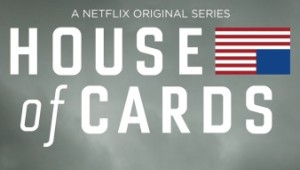Note: the following is based on seasons 1 & 2 of Netflix’ House of Cards and refers to minor plot details:
“Bad guy wins” can be a satisfactory outcome of something….but if the rest isn’t good, if there’s no one to root for, if there’s nothing to invest you in the plot or characters, then it ultimately fails, and that’s why this show fails. Any sympathetic characters are either written paper thin, as complete suggestible fools, or just cannon fodder for Frank Underwood’s mustache-twirling, fourth wall-breaking, cartoon villain. The high production values, prestige, high-profile fans, and award attention might make you believe there’s something less hollow at the core, but that isn’t the case.
“Bad guy wins” works when there’s something to make you care. But there’s no one of any significance to empathize with around for too long. Characters you might root for flit in and out as long as they might be somewhat useful for Underwood to use and manipulate. They’re not there to have a background or agency of their own or to make us care–and that’s the central problem. The Underwoods, in their ambition, will steamroll over anyone, and for characters like that to chew scenes, you need cannon fodder. Lots of it. Characters that try to act with sympathy or empathy are quickly taken advantage of and disposed of nearly as fast, sometimes thrown a bit of plotline before being cut loose, murdered, or otherwise left in the wake of the main character. Sometimes characters we haven’t seen in a while are trotted out for an episode or two just to be manipulated or used against others and then summarily tossed away.
I know many that are enjoying the newly-released season three, but there’s no reward in this show for a viewer like me. Not all shows can appeal to every potential viewer. The best moments of House of Cards come when Frank shows what little humanity he has left tucked away inside, and not for personal gain. The eighth episode of season one, where he spends a night drinking and socializing with his old college buddies (including one he had feelings for) is the best episode of the series. The moment where he tries to show restraint and genuine caring toward ribs restaurant owner and friend, Freddy, only to be deterred by ambition, also gave us a glimpse of actual human being under the cold villain at the show’s core.
Cold is a good word to describe House of Cards itself. If you’re looking to watch and enjoy an ambitious, manipulative villain step on everyone’s backs with little to stop him, this might be your kind of show. I look for people to care about in the movies and shows I watch, and the qualities Frank Underwood possesses are entirely off-putting to me personally. Without someone or more than a few someones to consistently root for or care about throughout the show’s run, it simply begins to ring hollow and wear thin. It leaves me cold. If a meteor struck these people, I wouldn’t care. And that, to me, is a sign that something big is missing.
